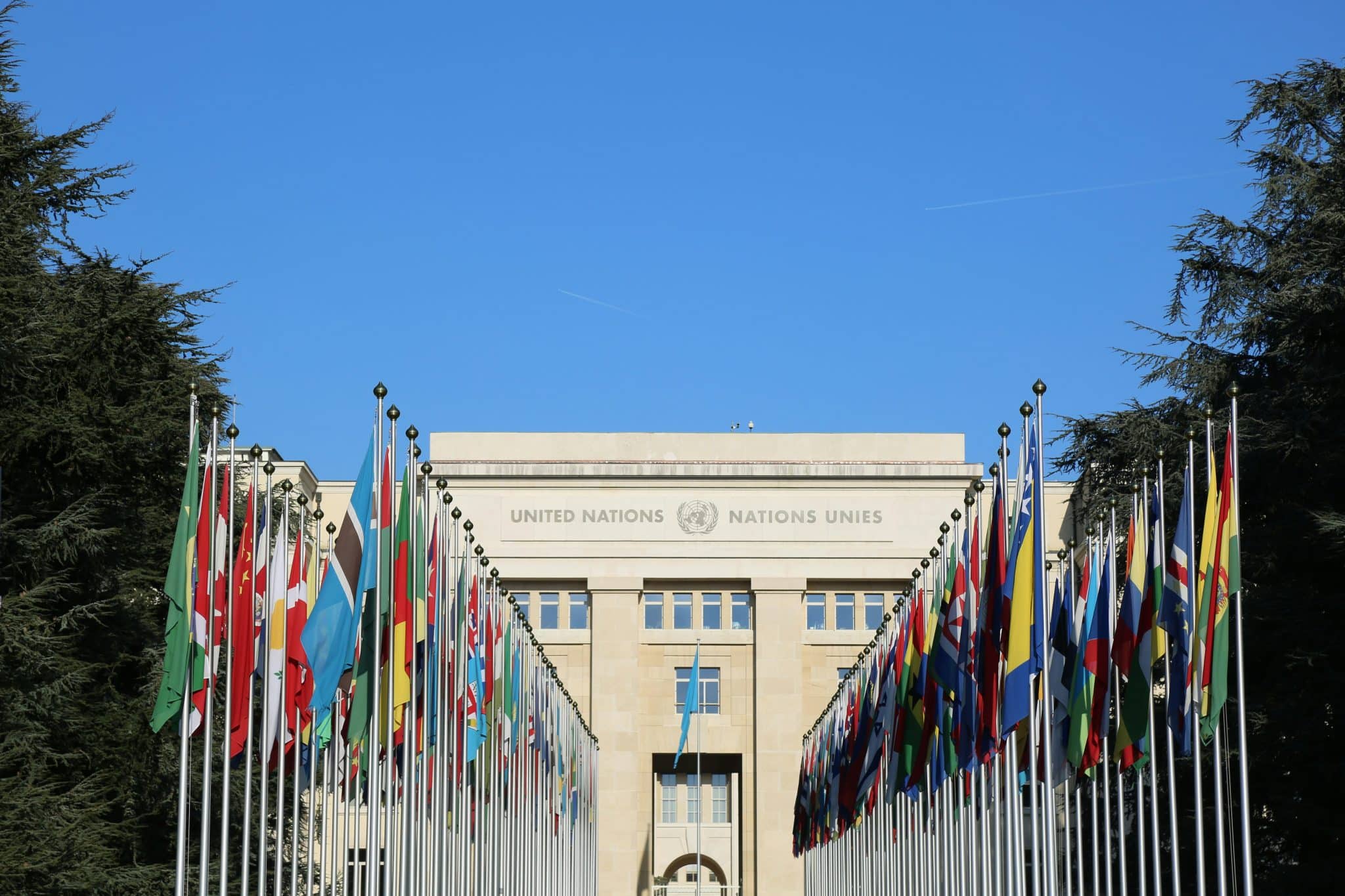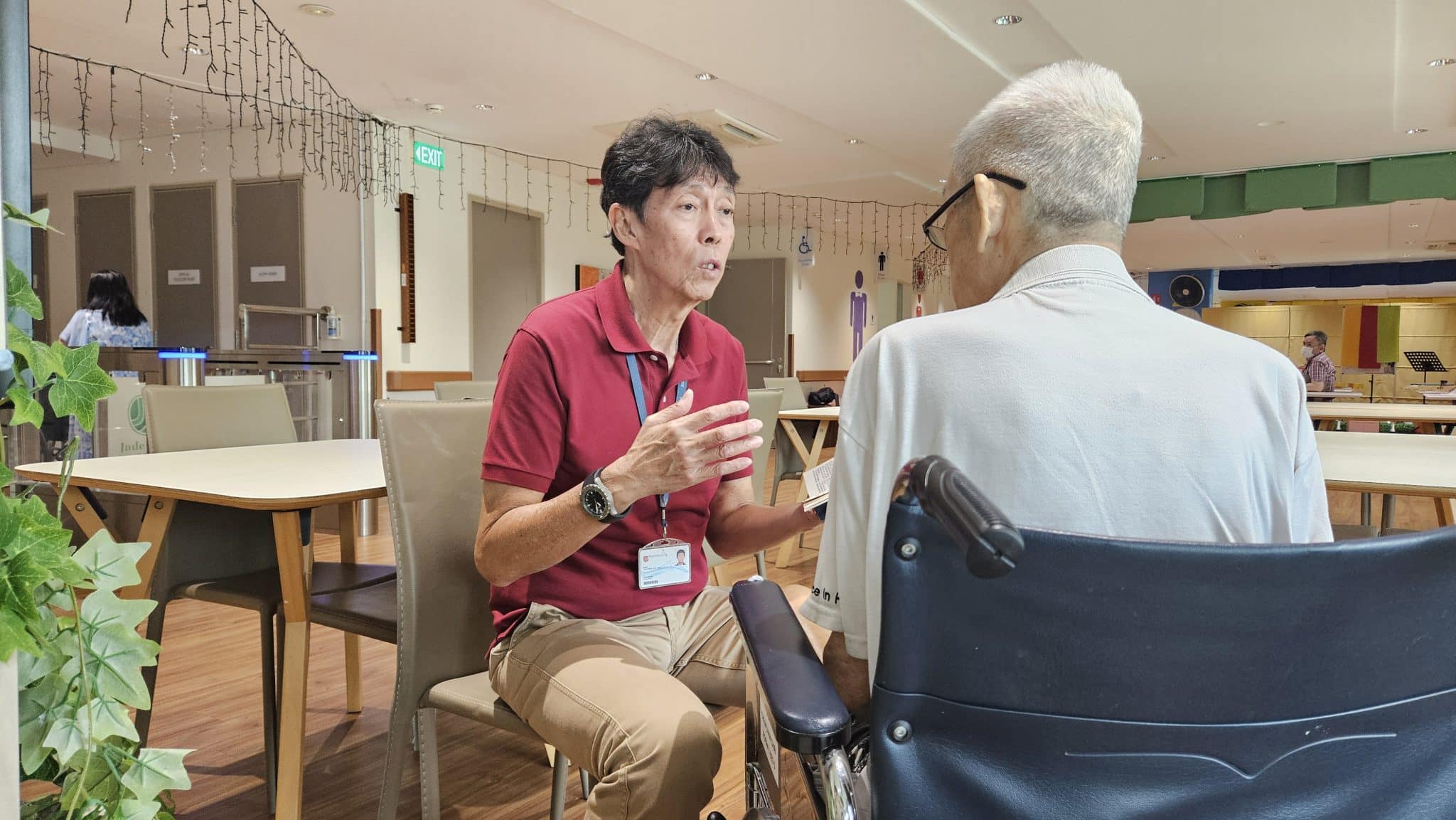“We have a Saviour who weeps with us”: The accidental funeral pastor and how his loss helped him comfort others
by Juleen Shaw // December 3, 2022, 1:39 am
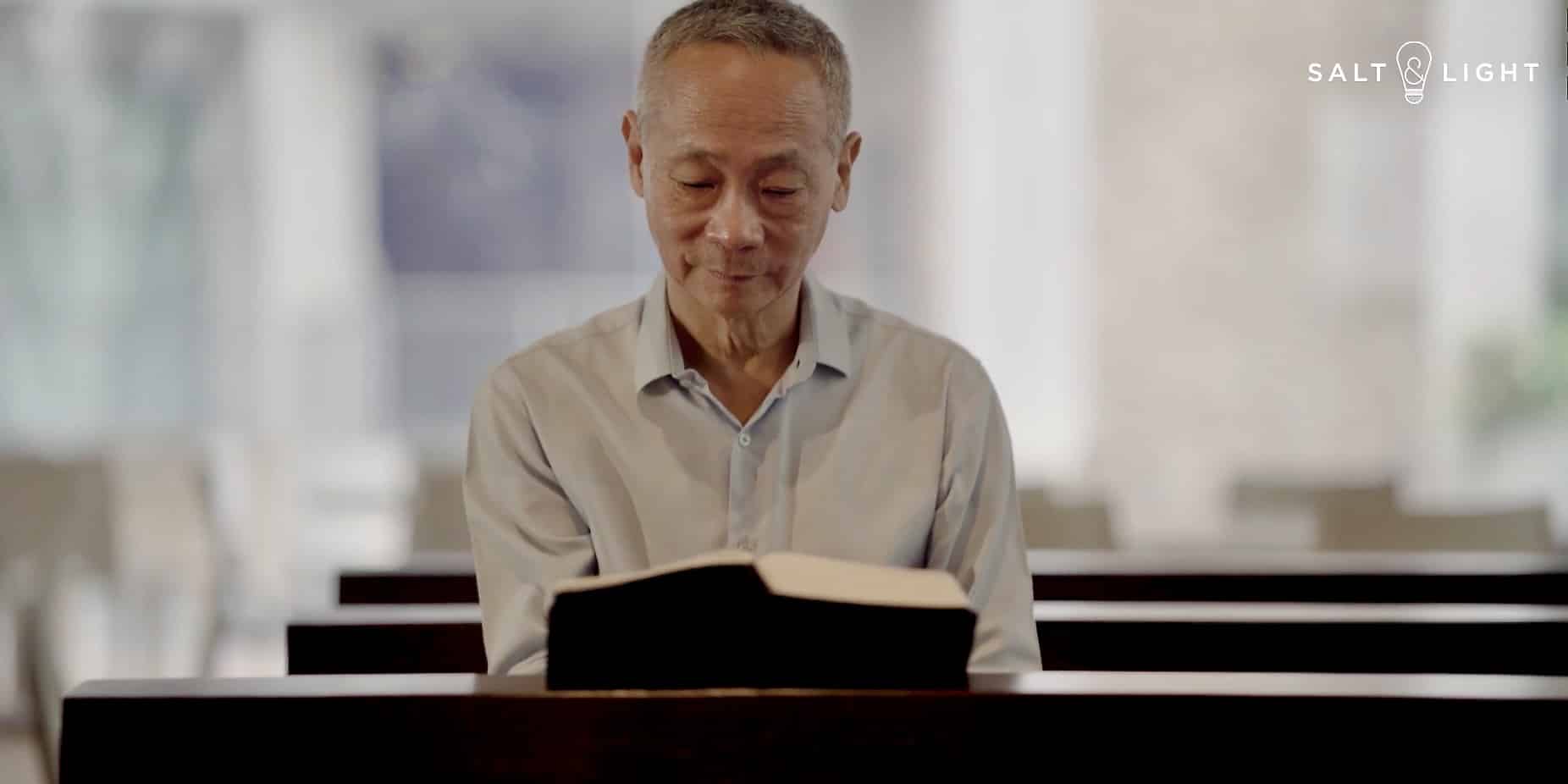
To a non-believer, the loss of death is permanent. Whatever is broken will remain broken; whatever is dead will remain dead, says Ps Too Teh Hsin. “But to a Christian, we do not grieve as one who has no hope." All photos courtesy of Pastor Too Teh Hsin.
Fifteen years ago, if anyone had told Too Teh Hsin he would voluntarily swap his successful career as a regional IT director for the role of a funeral pastor, he would have pronounced: “That’s crazy. Insane!”
In fact, he used to go out of his way to avoid funerals.
“For most of my life, I actually felt really uncomfortable at funerals,” he confessed. “I just didn’t know what to say, what to do emotionally. I didn’t know how to connect.”
But all of that changed when he spent the last few days of his dying father’s life by his bedside, even watching him draw his final breath on earth.
“I had no idea then that God was preparing me to be able to walk with others who have lost a loved one.”
Carefree childhood
Born in Taiwan, he moved to Malaysia at four years old when his family followed his father to Kuala Lumpur for work.
His childhood was idyllic. “My two younger sisters and I would play together all day long. We lived in a landed house in Malaysia, so there was lots of room to run around playing catch or hide-and-seek or fighting spiders.
“I enjoyed life in Malaysia. The people were warm and life was simple.”
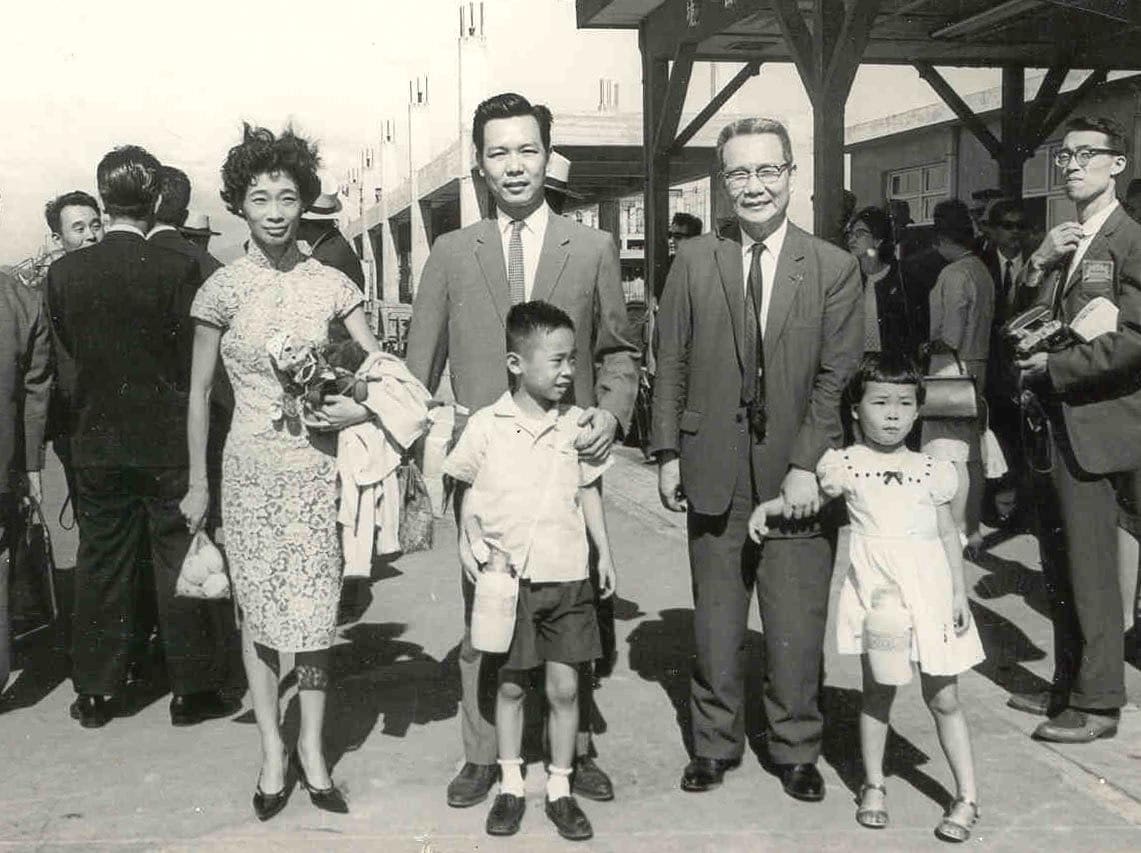
As a young boy, Too Teh Hsin (centre) moved from Taiwan to Malaysia when his father’s job took the family to Kuala Lumpur.
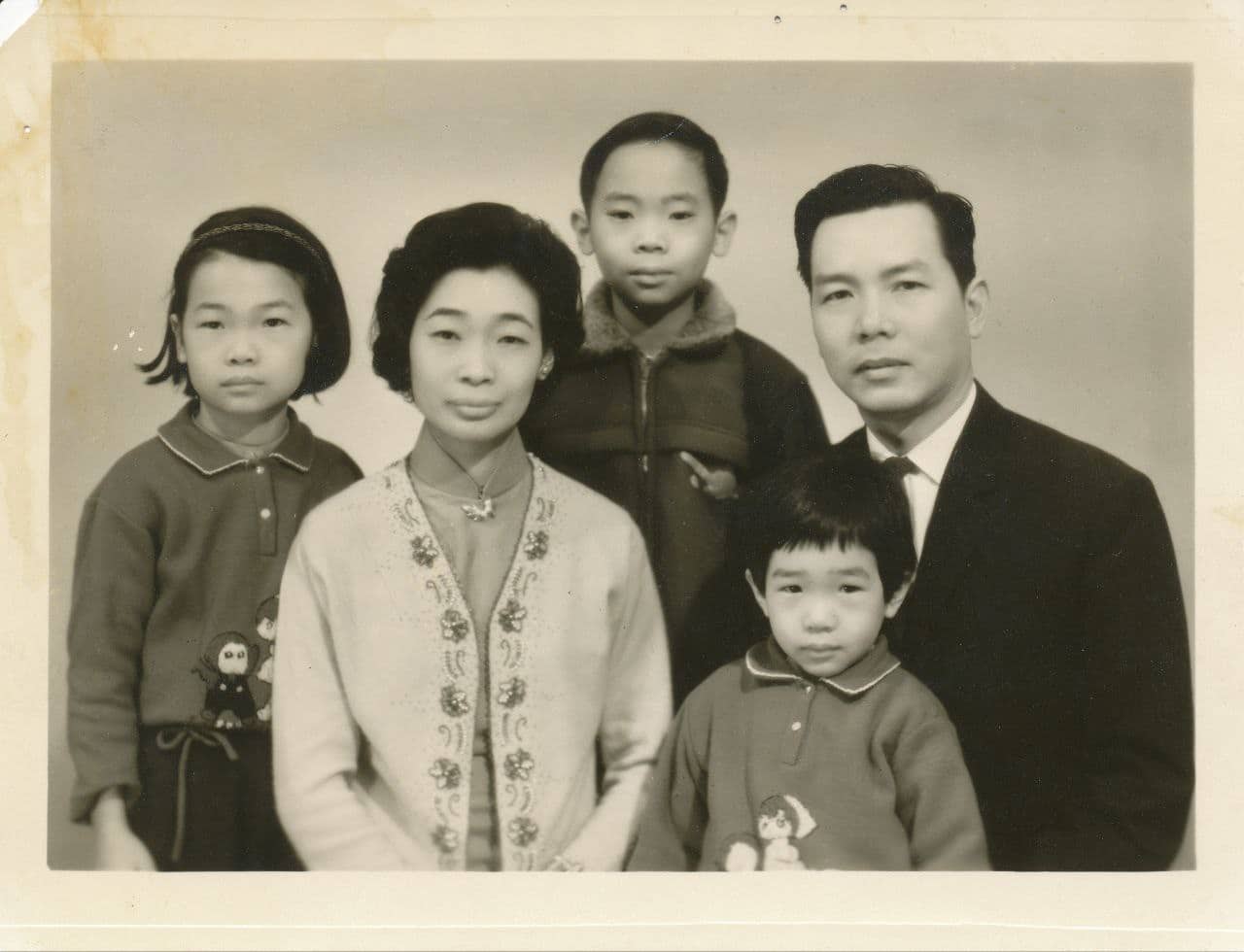
With his two younger sisters, mother and his father, who was so well respected in the community that a young Ps Too wondered how he could ever measure up.
He spent his school years in Malaysia up to his ‘O’ levels. Without permanent residency, he was unable to attend university in Malaysia at the time. So off he went – from tropical Malaysia to freezing Indiana in the US – where he studied electrical engineering in university.
In those years of young adulthood, he “never thought much about faith”.
Growing up, his parents sometimes practised the traditional Chinese faith and at other times took him to church with their Christian friends.
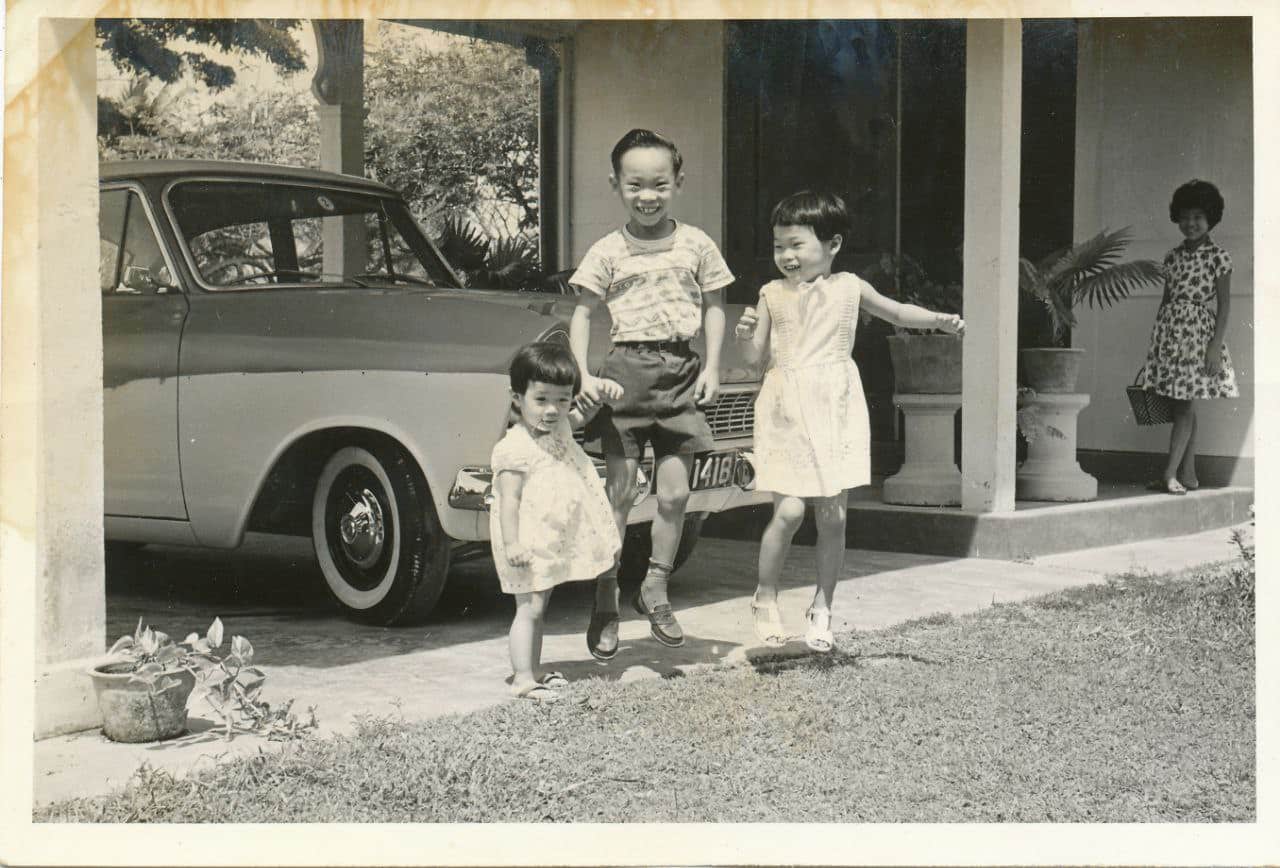
Growing up in Malaysia with his two sisters was a lot of fun as they spent carefree days playing catch and hide-and-seek.
“I didn’t like Christianity; I thought it was very boring,” he said wryly.
“And I didn’t like the Christian ethics. I thought it was very restrictive. I was in the US as an adult, exposed to sexual freedom and pornography.
“Eventually, I got married, committed adultery and my marriage fell apart,” he recounted soberly.
Adultery and divorce
But even as his personal life was falling apart, his career was taking off.
He was sent to Singapore as an expatriate, working as an IT director of an American company managing a large regional portfolio. His generous expatriate package included a rented house and schooling for two of his children at the Singapore American School.
His ex-wife, also in Singapore working as an expatriate, still held out hope for saving the marriage.

As an expatriate in Singapore in 2016, he was living the good life, but was “still yearning for something more”.
“But I didn’t want to. I felt like marriage was like a prison,” he said.
“Our kids were shuttling back and forth between us, and oftentimes when my ex-wife and I saw each other, we would just dive into endless argument. I felt really exhausted.”
He would work in Singapore for 16 years.
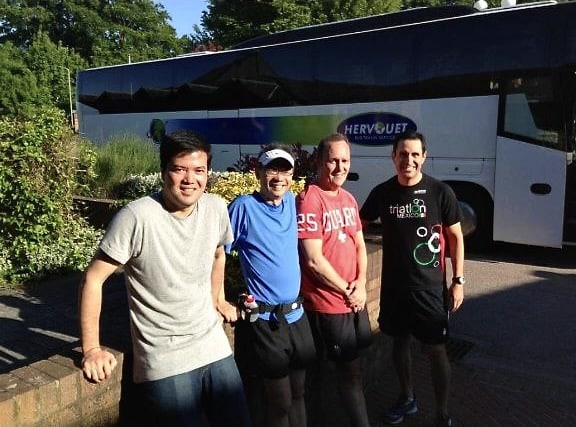
As a successful IT director for an American company, he jetsetted around the world, mingling with colleagues from China, England and Mexico.
But as many discover, “even when you find success, there can be a hole in your heart”. “It’s good for a while,” he observed. “But it’s never enough. There was a yearning in me for something more.”
“I didn’t want to go to church lah, but I liked her so I cannot say ‘no’ too many times.”
Despite the fact that he “did not find Christianity appealing at all”, a woman he befriended during this time was a fervent Christian.
Eventually the inevitable happened – she asked him about his faith.
“At the time, I had a very distorted view of God,” he said. “I told Joyce, ‘Yeah, I believe there’s a God, but all religions are the same.’”
She invited him to church several times, an invitation he managed to dodge for a while. But eventually he capitulated.
“I didn’t want to go lah, but I liked her so I cannot say ‘no’ too many times,” he recalled with a laugh.
“I told her, okay, but don’t expect me to come every week, maybe once a month I might be willing to consider.”
So one Sunday, he accompanied Joyce to her church, Agape Baptist Church.
It was there that the unexpected happened.
Light at the end of the tunnel
“I was sitting in the church, listening to the pastor preaching – I don’t even remember what he was preaching – but I just had this sense that, wow, this is the light at the end of a dark tunnel,” he said.
“At the time, I was so lost I didn’t know what to do with my life. I realised I was not smart enough to navigate my own life, which had ended up in divorce. Now, here was some hope.”
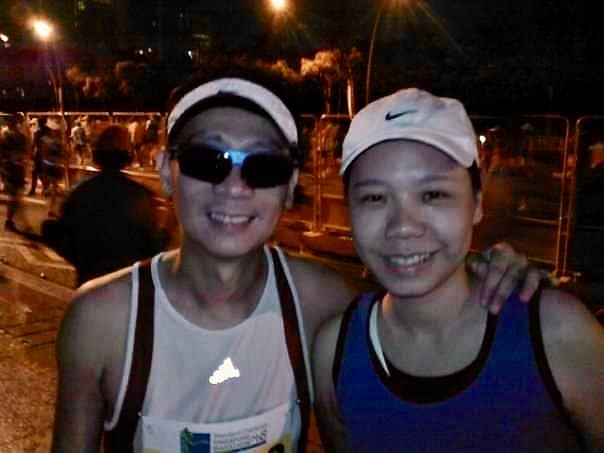
Running a marathon with Joyce in 2008 during the courtship days.
The next Sunday, he didn’t need an invitation to return to church.
“I was just amazed that God would bother to redeem someone like me. Who has rejected Him all my life.”
He returned the following Sunday as well, and every Sunday after that.
A few months later, Joyce asked: “So, do you want to be a Christian or not?”
He replied: “’Yeah, why not.’ So she asked her cell leader to pray over me and to lead me in the Sinners Prayer.”
To this day, he still thinks back on his spiritual transformation with wonder.
“One thing I never thought I would become is a Christian, it was something that I had no interest in at all,” he said.
“I was just amazed that God would bother to redeem someone like me. Who has rejected Him all my life, even to the destruction of my own family,” he said, choking back tears.
“So there’s hope for everyone. There’s redemption. There’s that love for sinners who don’t deserve any love.”
To top it all off, he and Joyce – “a wonderful, wonderful woman” – are now married.
The first funeral
After his retirement at 61, he joined Agape Baptist Church as a full-time pastor at the request of then Senior Pastor Guna Raman.
When Pastor Guna had first approached him, he’d been taken by surprise and he told Joyce: “Pastor asked me to be on staff and I’m praying about it. And my wife told me, ‘Haven’t you already been praying to God to show you what He wants you to do after retirement?’ I said, ‘Oh ya hor’.”
The first funeral he ever conducted turned out to be his own father’s.
He laughed at the recollection.
As part of his pastoral duties, which includes preaching and leading cell group, Pastor Too, now 67, regularly conducts funeral services of church members and their families.
The first funeral he ever conducted turned out to be his own father’s.
The memory of journeying with his father – and his family – through the last days is one that still moves him.
“My dad was sick for about five years with chronic leukaemia,” he said. “Whenever his condition got out of control, he would be hospitalised. It took a big toll on his health. Even when he was discharged he would have lost the ability to walk and needed rehab.
“He was really a fighter. Every time he was discharged he would walk up and down in the apartment, the corridor and eventually the neighbourhood every day. He fought to regain his strength because he loved us, his family, and wanted to be able to do life with us. It was his main motivation.”
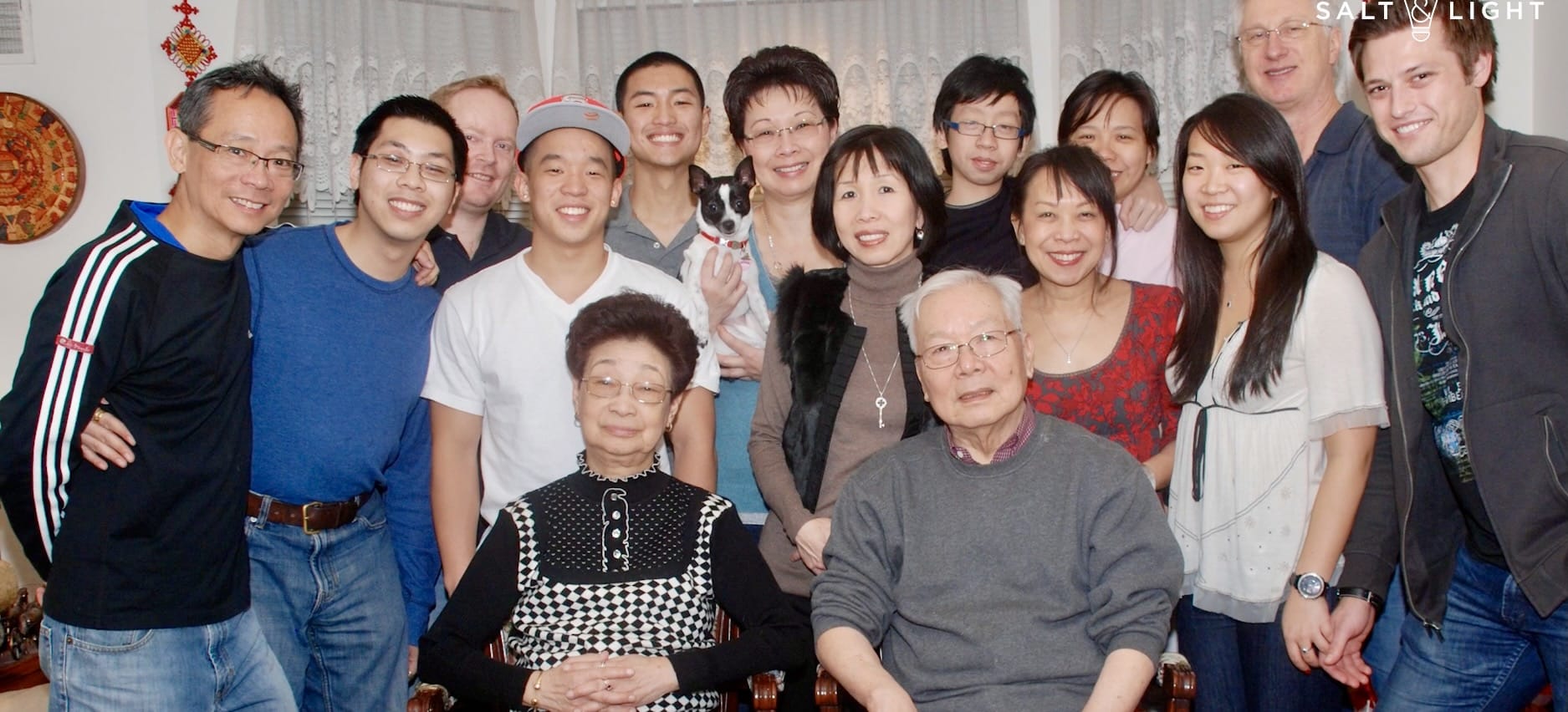
With his mother, father, sisters and extended family on a visit to California.
By then his family, including his two sisters, were living in California. Whenever his dad’s white blood count shot up, Ps Too would catch the next flight to be with him.
On one of those visits, he had a poignant conversation with his dad, who told him of a vision he’d had where he’d seen his dog that had passed away. He thought that maybe there was a heaven.
“So I talked to him about death, about eternity and life after death. That there is life after death; there is heaven through Jesus,” said Ps Too. “I asked if he desired to be in heaven, and if he did, I could lead him to accept Jesus. He agreed.”
His mother at the time was a staunch believer of a traditional Chinese religion, praying to idols every morning for at least one hour.
But as Ps Too led his father to Christ, his mother and his two sisters, who had been listening closely to the conversation, also accepted Christ.
A room in heaven
At his father’s final hospital stay, Ps Too and his sister took turns to be at their father’s bedside, praying for him and seeing to his every need from helping him with sips of water to going to the bathroom.
“Your father’s life was in My hands. And now, he is in My arms.”
They knew their father’s chances of recovery were very low, and decided on palliative care to make him more comfortable.
But in the afternoon, when he was alone with his father in the hospital room, his father drew his final breath.
It was an incredibly sad moment, recalled Ps Too.
“I was wrestling with the grief, the loss of my dad, and then dealing with the sense of regret and second guessing whether we’d made the right decision to put my dad in palliative care.
“As I was struggling, I felt God reassuring me, ‘Teh Hsin, the life of your dad is in My hands. It’s not in your hands. It did not depend on your decision of whether you put him on palliative care or kept him on treatment.
“It was in My hands. And now, he is in My arms.”
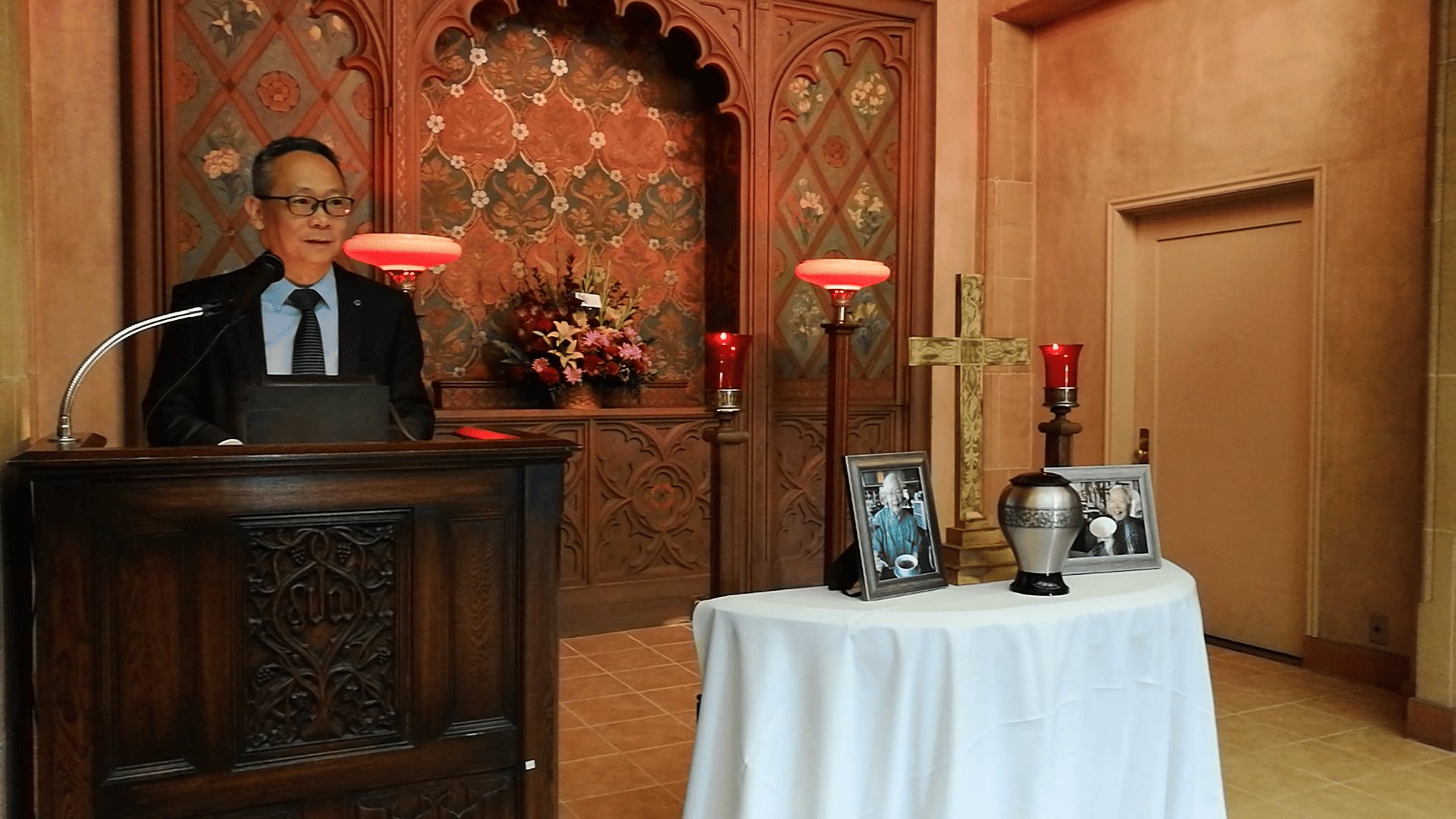
The first funeral that Ps Too conducted was his father’s. “Anyone who is not yet in Christ, Dad would want them to be in Christ, so that they can have that reunion in heaven,” he told friends and family.
The first funeral Ps Too would conduct – his father’s – was deeply personal.
“This was my father. I was telling people how I missed him, what it must be like for him now in heaven, with Jesus taking him to the room that’s been prepared for him. He loved music, so I imagined a room where he could sit and enjoy music. And the music is not only ‘hi-fi’, it’s ‘perfect fi’!
“He would be waiting for us and all his friends to join him. Anyone who is not yet in Christ, he would want them to be in Christ, so that they can have that reunion in heaven, tell stories together, laugh and enjoy themselves in the company of God.”
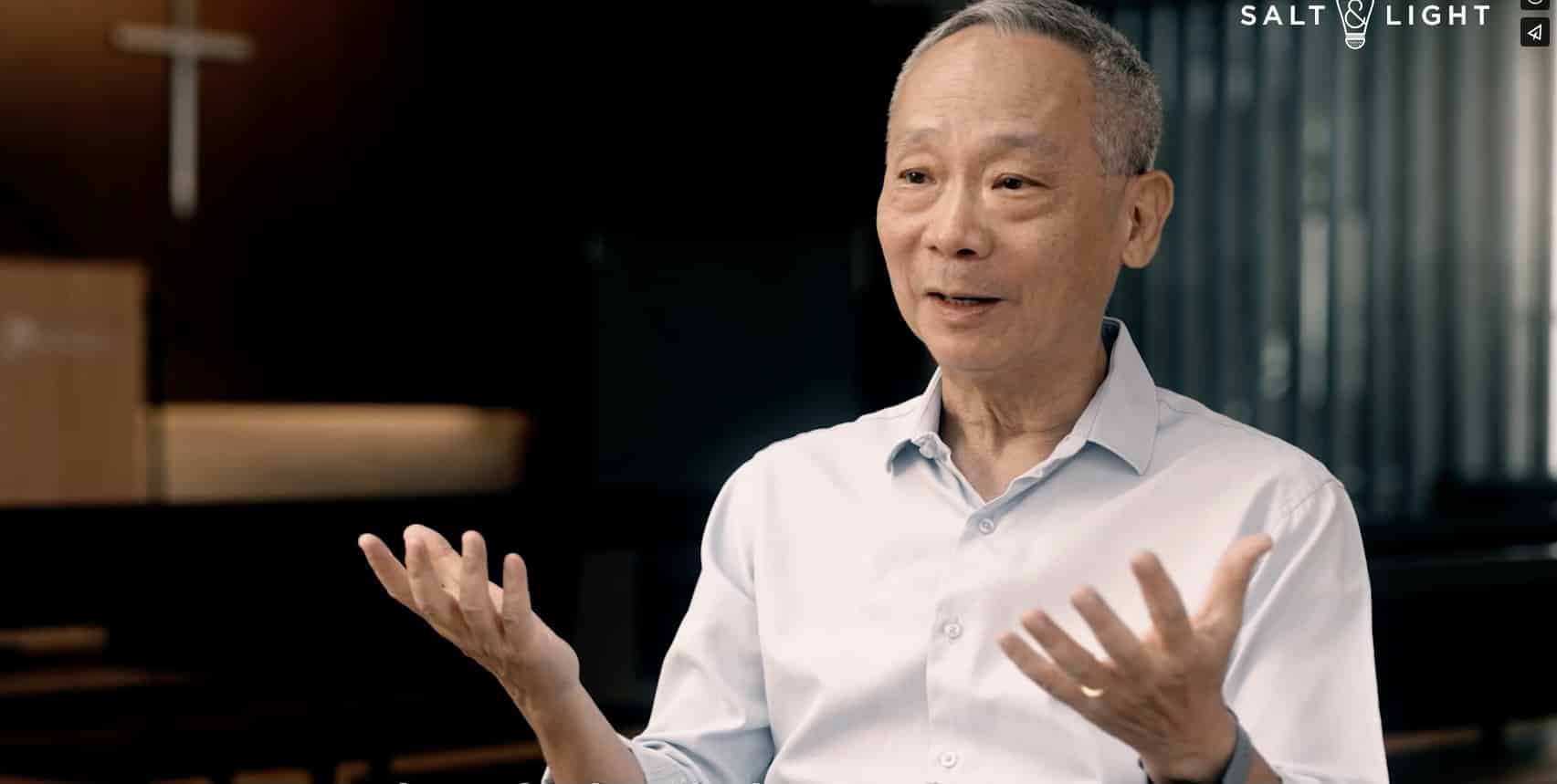
“To a Christian, we do not grieve as one who has no hope,” says Ps Too. “As Christians, we can say the person that I have lost is simply asleep. I will see him or her again.”
The personal nature of his dad’s funeral became something Ps Too subsequently took to every funeral he would conduct, ministering to the bereaved by specifically honouring each loved one’s memory and ministering to the brokenhearted with empathy.
A place for grief
Grief and loss are realities of life that even Jesus acknowledged, said Ps Too.
At the tombside of Lazarus, Jesus told Martha that her brother shall live again. When he saw Mary, his response was different. Mary was crying, Lazarus’ friends were crying.
And Jesus also wept. (John 11:35)
“At the funeral of our family members, Jesus is weeping with us, saying, yes, you love your father; so do I.”
“Why would He weep?” mused Ps Too. “He knows that in a few moments He’s going to bring Lazarus back to life. Why didn’t He say, ‘Mary, relax. I’m going to bring him back in a moment. Just watch me, this is exciting.’
“Jesus weeping with the knowledge that He is going to bring Lazarus back from the dead doesn’t make sense.
“But I believe Jesus looked at death and He wept because it was not meant to be. He saw the grief that is going to happen. Repeatedly. Funeral after funeral – before and after the end of the world – there will be people weeping from deep loss.
“We have a Saviour who weeps with us. At the funeral of our family members, Jesus is weeping with us, saying, yes, you love your father; so do I. I can feel the pain in your heart and I weep too.
“To a non-believer, that loss is permanent. If there’s any unforgiveness, anything they wish to make up for, there’s no more chance. Whatever is broken will remain broken; whatever is dead will remain dead.
“But to a Christian, we do not grieve as one who has no hope. In Thessalonians, Paul does not describe the death of the Christian as death, he says our loved one is “asleep”: Brothers, we do not want you to be ignorant about those who fall asleep, or to grieve like the rest of men, who have no hope. We believe that Jesus died and rose again and so we believe that God will bring with Jesus those who have fallen asleep in him. (1 Thessalonians 4:13-17)
“We never cry when one of our loved one goes to sleep, right!” remarked Ps Too. “We see sleeping as a good thing. So as Christians, we can say: The person that I have lost is simply asleep. I will see him again.
“You can still find joy in your sorrow.”
The face of impenetrable faith
So why does God heal some and not others on earth?
“God does promise eternal healing,” said Ps Too. “Revelation 21 says that He will wipe away every tear from your eye and death shall be no more; neither shall there be mourning nor crying nor pain any more, for the former things have passed away. In heaven, everything that’s bad has turned to good. Everything that’s broken in our life is restored.
“Why should we insist that God must heal on this side of heaven in order for us to believe Him?”
Ps Too is reminded of one of the most impactful funerals he has conducted – that of his own cell group member, Huang Chi-Kai.
Two years after Kai became a Christian in 2018, he discovered he had fourth stage nose cancer that had travelled to the spine. The church rallied round, praying and supporting him and his wife, Maria. Despite his illness, Kai continued to share the Gospel to strangers.
But after bravely fighting the cancer for two years, Kai breathed his last. He was just 42.
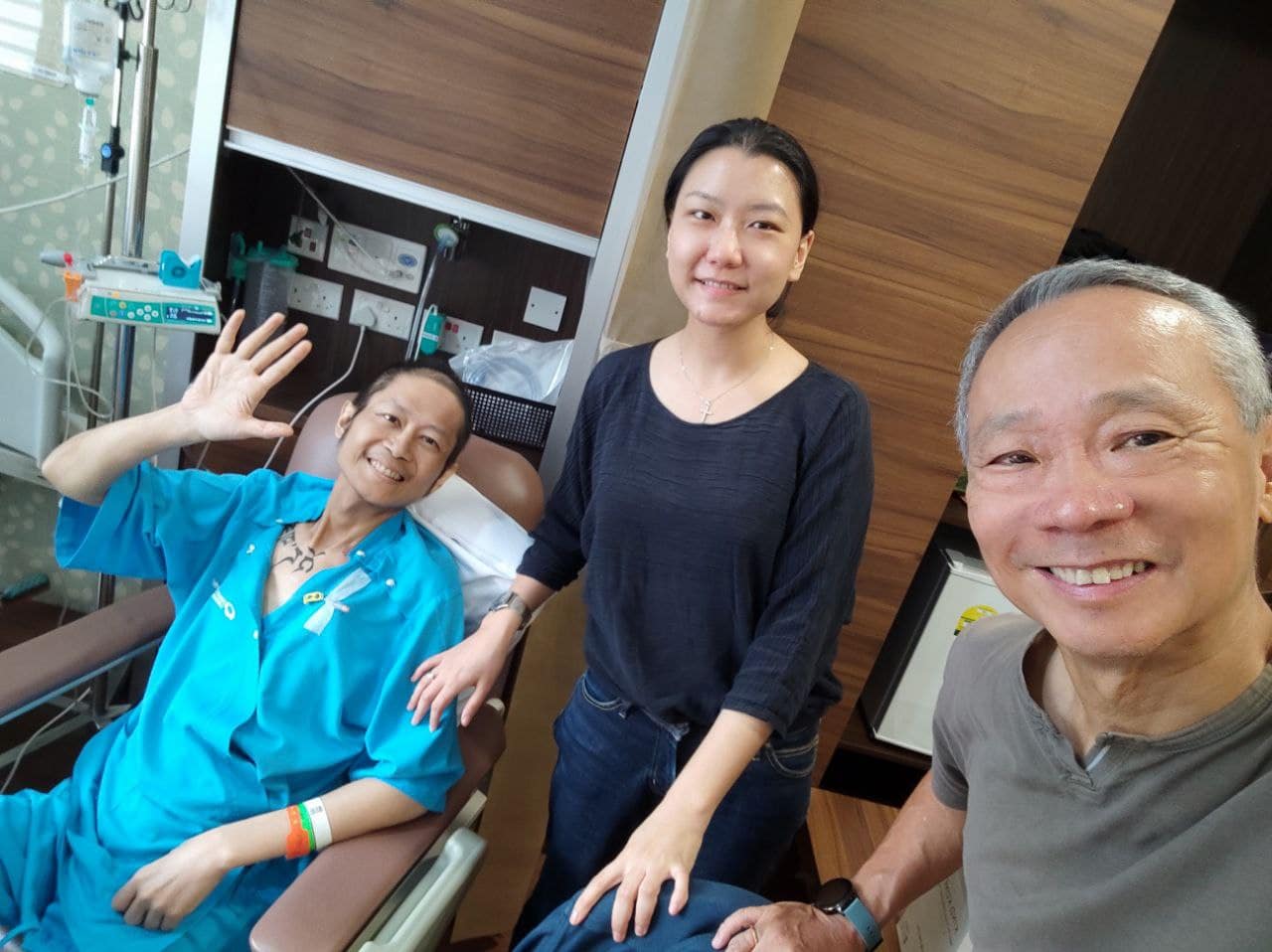
Even in his illness, Kai never tired of sharing the Gospel with strangers. He liked to say that his was an ‘impenetrable faith’ given to him by the Holy Spirit.
“Kai had this wonderful faith that was so contagious – even in his last days, those who went to the hospital to encourage him always came away more encouraged by his faith,” said Ps Too.
“Kai described it as ‘impenetrable faith’ given to him by the Holy Spirit. It was not something intentional but natural.
“Maybe God chose Kai because He knew: This man’s faith would stand strong for Me to the last hour.”
“Even to the very end, when he had no more strength to do anything, he raised up his arm to worship from his hospital bed. It was so encouraging to see a brother in his weakness glorifying God, showing that it is by the power of Jesus that he is able to raise that arm.
“In his weakness, the power of Jesus shone through.”
Why did God not heal Kai?
“We have to believe that God knows best in His infinite wisdom. Even when we cannot understand and we ask: Why take away Kai when he’s so young? Why break up his marriage when they haven’t even had a child yet? This man of faith, surely he can impact more lives and lead more people to salvation if he were to live.
“We don’t know the answer. But God certainly knows. He sees the same things that we see.
“Maybe He chose Kai because He knew: This man is able to worship Me to the end. His faith would stand strong for Me to the last hour. He will bring glory to me through his death rather than his life.”
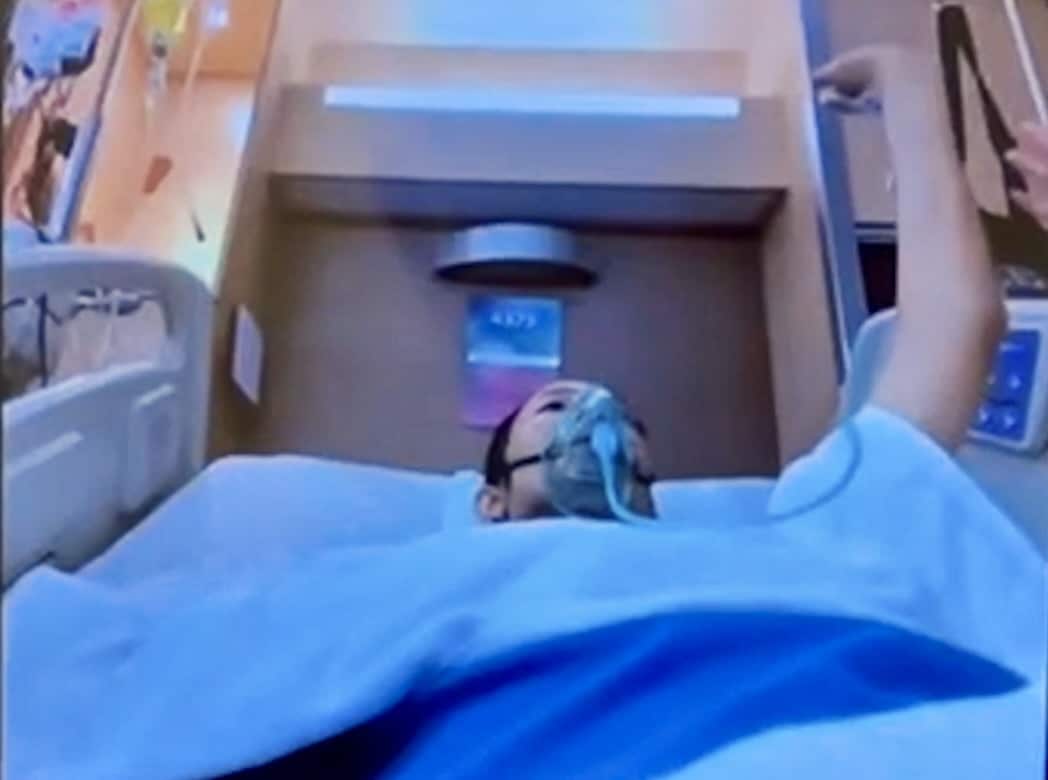
Even when Kai was too weak to do anything else in his last hours on earth, he could raise his hand in worship. “In his weakness, the power of Jesus shone through,” says Ps Too of the moving moment.
He told a story of Kai’s extraordinary impact.
“When Kai was in hospital, the family was considering discharging him. But he would be in a wheelchair, his mobility would be severely impacted. He needed a convenient place to stay.
“The death of Kai impacted this man he’s never met in a very profound way.”
“One of my cell member’s father had a small condo unit. The toilet was just next to the bedroom. So it seemed quite ideal.
“This cell member had not offered the place because he knew his dad would not have liked someone sick staying in the place, and worse – if someone dies in his condo, he would have had to sell the condo.
“But he asked anyway. True enough, his dad said no. But his conscience would not let him rest. Over the subsequent days God kept on working in his heart. A few days later he came back to his son and said, ‘ I am willing. If Kai and Maria need transport I will go and drive them to my place.’”
Kai was never discharged, he died before there was a need to use that condo. But because of that, Ps Too’s cell member’s dad came to know the story of Kai.
“When my cell member shared the video of Kai raising his arm in worship before he died, his dad broke down in tears. He said, ‘I want to die well like this too.’
“So, you see, the death of Kai impacted this man he’s never met in a very profound way. How many more such stories are there that we don’t know about?”
Spending eternity together
After the many funerals Ps Too has conducted, the question is: How would he like to leave this earth when his time comes?
He gives a little laugh and considers the question for a long beat.
Then he reflects: “I want to leave the earth with peace in my heart. Just like Kai. That’s what it looks like.
“I want to leave the earth with the assurance that I will see my Saviour again. And that the family that I leave behind will be in His good hands. I want to leave the earth hearing the words of Jesus: Well done, my humble servant.”
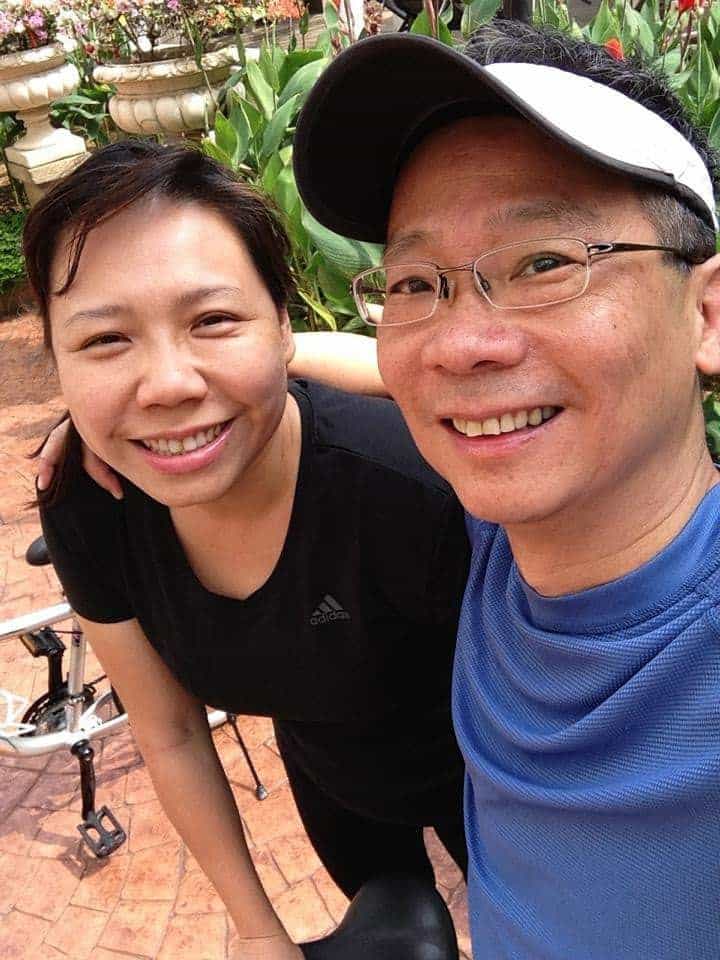
With Joyce, the “wonderful, wonderful woman” who is his wife. “For a while I fought off the idea of marrying her,” admits Ps Too, as he remembered the sins of his past. “I didn’t want to become a curse for her. It was only when God set me free that I was ready.”
Not many would call a funeral pastor a man of privilege. But Ps Too does.
“It is a privilege,” he said, “that at the most vulnerable moment of people’s lives, I can be part of that.”
And he has a message for you.
“If there are any non-believers who should read this article, I want you to know that this is why your Christian friends can sometimes be so annoying and persistent in inviting you to church – because they love you. They want to spend eternity with you.”
RELATED STORIES:
We are an independent, non-profit organisation that relies on the generosity of our readers, such as yourself, to continue serving the kingdom. Every dollar donated goes directly back into our editorial coverage.
Would you consider partnering with us in our kingdom work by supporting us financially, either as a one-off donation, or a recurring pledge?
Support Salt&Light